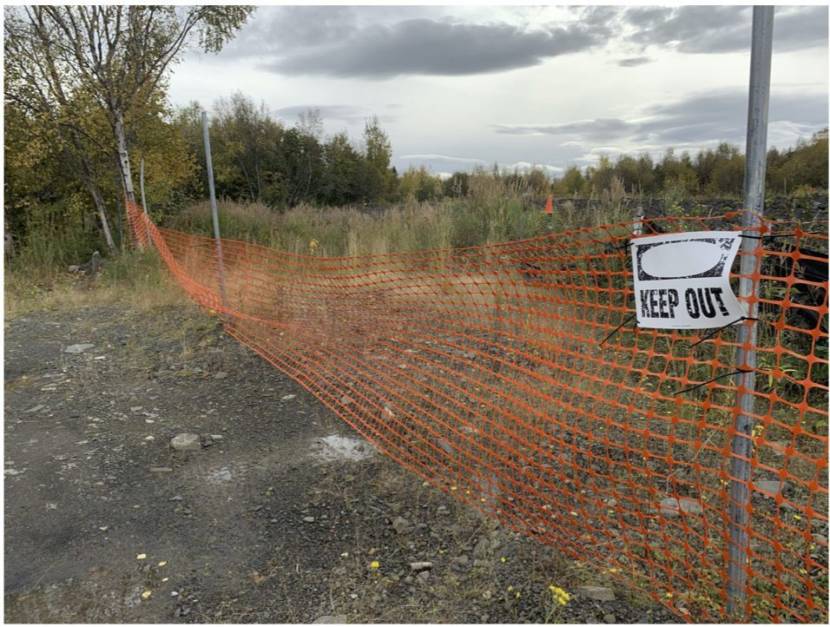
Unalakleet resident Emily Nanouk is fighting the U.S. government in court for the health of her family and the sanctity of her land. Nanouk’s property was contaminated by toxic chemicals which she says had detrimental health effects on her family and home.
Since the 1960s Nanouk has not only used her land in Unalakleet to raise her family, but also for subsistence activities like hunting, fishing and berry picking. In 2003, she noticed a strange smell and dead vegetation between her property and the abandoned North River Relay Station.
“It’s not gasoline, it’s not oil, it was a sweet smell. I knew it wasn’t right, there was something wrong. There was no green stuff around it, there was no green willows, no berries. [It was] dead around that area. I knew there was something wrong,” she said.
This relay station was built as part of the White Alice Communication System to allow for early warning of any potential Soviet air attack during the Cold War and was operated by the United States Air Force. By the 1970s new satellite technology rendered these systems useless. So, the Relay Station was closed in 1978 and the Air Force abandoned the site.
“Everybody just kind of packed up and left, I guess, like when you pull out of a war zone,” said Sam Fortier, an attorney representing Nanouk.
Their case points out that in 1981 the Air Force was criticized for doing nothing more than sending a ‘caretaker’ out to the site to inspect the property. It was discovered that barrels containing highly toxic polychlorinated biphenyls — commonly referred to as PCBs — had been left, not properly disposed of and began contaminating the surrounding area.
Nanouk and her family used the only trail leading from the main road to her allotment, which passed through the contaminated relay station site. The vehicles they drove picked up and carried the hazardous chemicals onto her property, spreading the contamination.
Fortier says Nanouk believes the exposure to PCBs affected her and her family’s medical conditions.
“Within her own family there have been significant illnesses, those illnesses are really connected to the PCBs. In this case, the PCB level was extremely high.”
According to Air Force technicians that examined the site in 2003, in some areas, they measured PCBs at 40,000 times the level that is considered safe for humans. In addition, Fortier notes a deeper element of emotional trauma associated with Nanouk’s experience.
“It’s also important to understand that in the early days after she [Nanouk] reported the discovery, people went in with basically moon suits to clean the property. You can imagine realizing that her husband had died because of the cancer associated with the PCBs, that she herself has had health problems, and all of her family has had health problems; only magnified her terror and the loss of use of her allotment.”
Fortier and Nanouk are arguing that this was negligent of the Air Force. The U.S. Department of Justice, assuming responsibility, declined to comment on this case. The Air Force stated that they could not make any comment in this case due to the ongoing litigation.
Nanouk’s lawsuit was originally halted on December 12, 2018 when United States District Judge Ralph R. Beistline dismissed the lawsuit. However, Nanouk’s most recent victory on appeal in the Ninth Circuit Court means she can keep fighting. This most recent decision was made on September 4, 2020 and the finding was published just after.
Nanouk says she would like to emphasize the importance of health to anyone hearing her story.
“And I would not want anybody to go through this, any family to go through this like my family and I did … [like we] still are going through. Health is more important than money.”
The COVID-19 pandemic has slowed court proceedings across the state and country, but Nanouk and her attorney remain persistent in pursuing this lawsuit as soon as they possibly can. This case now goes back to the United States District Court of Alaska, but the timeline for a final decision is unclear.